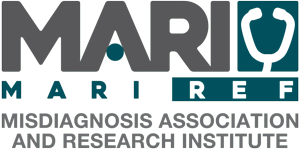Author: Zainab Adamji
Editor: Leah Farquharson, Nicholas Huen
Scientific Review: Ozair Ali
Overview
Anorexia Nervosa, commonly referred simply as Anorexia, can be classified as a severe eating disorder (Mitchell & Peterson, 2020). Anorexia manifests itself in the form of abnormally low body weight, an intense fear of gaining weight, and a deep fixation on body composition (Espie & Eisler, 2015).
Causes of Anorexia Nervosa
Due to fear of weight gain, people with anorexia heavily restrict their food intake or try to lose weight through excessive exercise (Frank et al., 2019). There are both physical and behavioral symptoms that can be observed.
Physical symptoms include (Mehler & Brown, 2015):
- Extreme weight loss
- Dry skin – often peeling/bleeding and sometimes discolored
- Bloating
- Elevated cortisol levels
- Fatigue
- Absent menstrual cycle in females
Behavioural symptoms include (Mehler & Brown, 2015):
- Loss of appetite
- Denial of hunger
- Mood swings
- Obsessive over food intake
- Excessive concern over physical appearance and weight
The causes still appear to be unclear, however research suggests that there are psychological and environmental risk factors that could predispose an individual to anorexia (Frank et al., 2019). These include increased societal pressures to achieve a certain level of body size, dieting culture, as well as pre-existing psychological conditions such as anxiety or depression that could promote unhealthy eating habits (Espie & Eisler, 2015).
How does the doctor determine the diagnosis?
Anorexia can be diagnosed through various means including laboratory testing for indicators of starvation, food intake reports, family history with eating disorders, and physical examinations (assessment of height and weight) (Chakraborty & Basu, 2010).
Complications of Anorexia Nervosa
Anorexia can result in a multitude of complications and in some cases can be fatal primarily due to weight loss and starvation (Mehler & Brown, 2015). Potential complications include:
- Delayed gastric emptying
- Constipation
- Infertility
- Osteoporosis (bone fragility due to low bone mass)
- Irregular heart rhythm
- Prolonged hormonal imbalances
- Muscle loss or bone loss
- Obsessive compulsive disorder
- Personality disorders
You might like to read about the Misdiagnosis Association MARI Research Institution.
Treatment
Psychotherapy is often the initial treatment of choice that this includes family therapy and cognitive behaviour therapy (Health (UK), 2004). Weight restoration through gradual refeeding can also be part of the treatment (Mitchell & Peterson, 2020).
- Family therapy – This treatment method involves focusing on family strengths to facilitate refeeding of the anorexic patient and is generally catered towards adolescents (Espie & Eisler, 2015).
- Cognitive behaviour therapy – This treatment method targets eating and exercise behaviours whilst developing a deeper understanding of negative eating thoughts and distorted body weight perceptions in the anorexic individual (Mitchell & Peterson, 2020).
There are no direct medical treatments that can be administered to patients, however, antidepressant medication in combination with therapy have shown to improve symptoms in anorexic individuals and promote sustainable healthy weight gain (Mitchell & Peterson, 2020).
References
Chakraborty, K., & Basu, D. (2010). Management of anorexia and bulimia nervosa: An evidence-based review. Indian Journal of Psychiatry, 52(2), 174–186. doi: 10.4103/0019-5545.64596
Espie, J., & Eisler, I. (2015). Focus on anorexia nervosa: Modern psychological treatment and guidelines for the adolescent patient. Adolescent Health, Medicine and Therapeutics, 6, 9–16. doi: 10.2147/AHMT.S70300
Frank, G. K. W., Shott, M. E., & DeGuzman, M. C. (2019). Recent advances in understanding anorexia nervosa. F1000Research, 8. doi: 10.12688/f1000research.17789.1
Health (UK), N. C. C. for M. (2004). Treatment and management of anorexia nervosa. In Eating Disorders: Core Interventions in the Treatment and Management of Anorexia Nervosa, Bulimia Nervosa and Related Eating Disorders. British Psychological Society (UK).
Mehler, P. S., & Brown, C. (2015). Anorexia nervosa – medical complications. Journal of Eating Disorders, 3(1), 11. https://doi.org/10.1186/s40337-015-0040-8
Mitchell, J., & Peterson, C. (2020). Anorexia Nervosa | NEJM. The New England Journal of Medicine, 382, 1343–1351. doi: 10.1056/NEJMcp1803175
